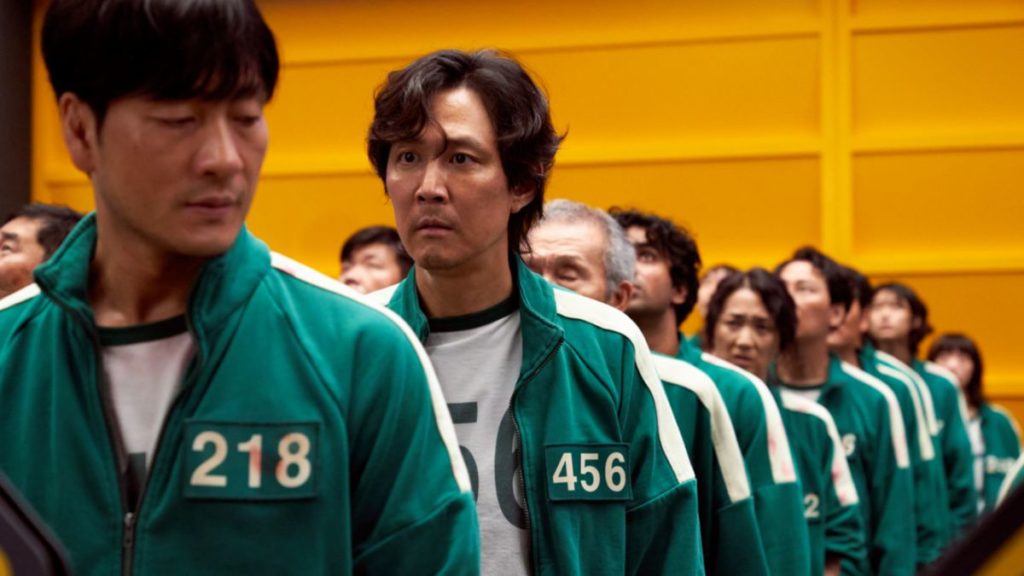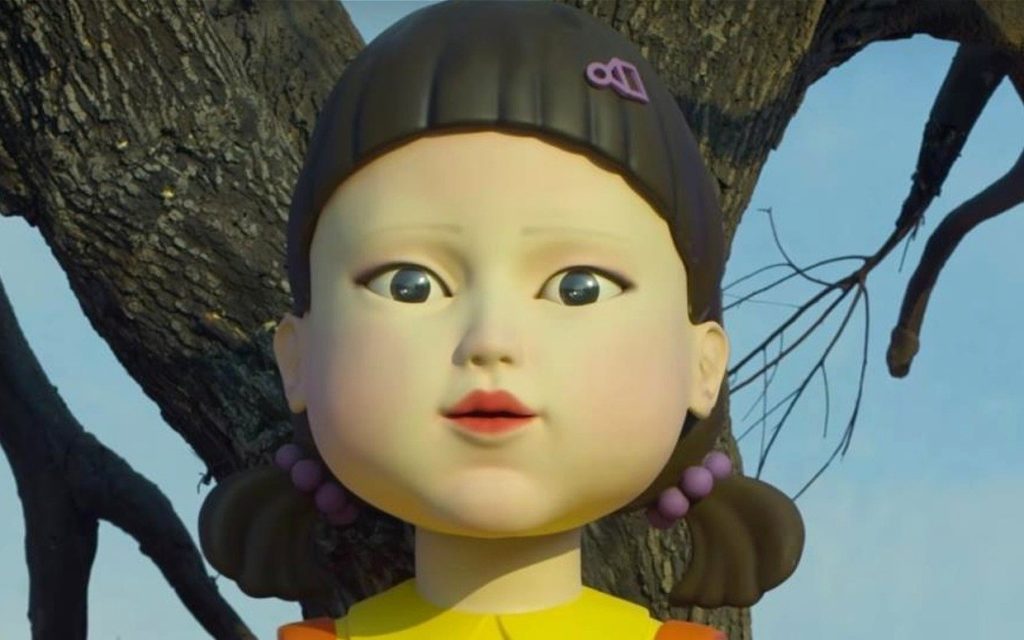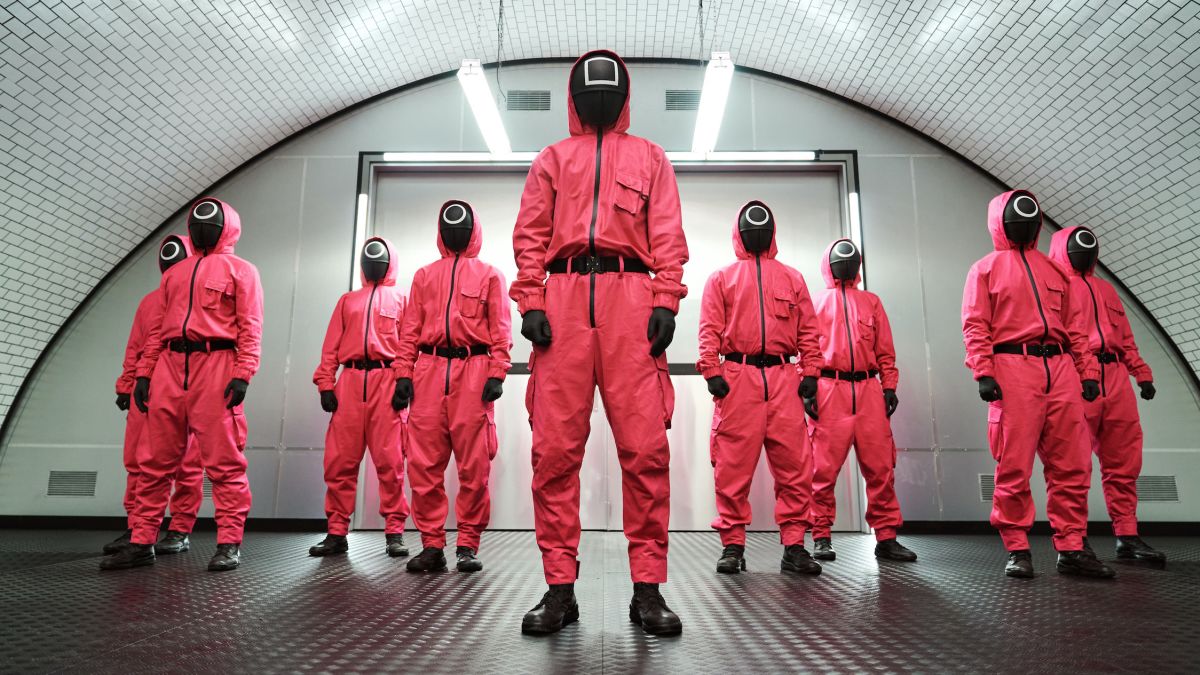Every once in a while, Netflix releases a series that instantly becomes a phenomenon. And valid reasoning can be raised behind the success of each of these shows. Money Heist only rose to fame after the release of its third season due to a pandemic. Dark had a grand season finale, which forced everyone to discover this unique concept for a storyline. The quality of the content varies and is debated even today. One such content released recently is Hwang Dong-hyuk’s Squid Game.
The premise of Squid Game is set in modern South Korea. The sociopolitical and socioeconomic conditions of South Korea have all been mirrored into the series. The series revolves around the victims of late capitalism, people who are broke and in debt. The show portrays how money makes people desperate. The plot takes off as our protagonist Seong Gi-Hun (Lee Jung-jae) accepts a Ddakji challenge (a Korean children’s game) with hopes of some desperate cash. He gets humiliated, but he keeps playing because completion would earn him money. This scene foreshadows the entire plot. Play children’s games, win and make money, lose and something important to you gets taken away. Gi-Hun joins a bunch of others to play a series of games with hopes of earning cash. The catch is that every time someone fails, they are killed.
Squid Game is a symbolic representation of the evils of capitalism. It represents a system where the minority benefit at the expense of the majority. In this system, all participants do not start at level grounds. Some people get a boost because of circumstances. We begin noticing this after episode 4. The Frontman states that the games are meant to provide all participants with a level playing ground. However, external factors like relationship with the guards, combat skills, college education, and natural strength ultimately become deciding factors in how far each player can come. The games are not neutral either. Nobody is in charge of their own fate; the environment is controlled by external people and other millionaires. We see this when in episode 8, the glassmaker is forced to give up his life to amuse the guests.

An interesting and necessary character in the story is Jang Deok-su (Heo Sung-tae). A gang leader who grew up in the streets, Deok-su finds out that the more players die, the more the chances of him winning the total prize. He starts killing players at night. This portrays the kill or be killed nature of corporate greed. Everyone is in some way or the other out to get you, and nobody remembers you unless you win. The winners curb the rules according to their own favor, thus always avoiding accountability. We see this more when he ditches his mistress Han Mi-nyeo (Kim Joo-ryung) before the third game (tug of war) and when he faces no remorse in having his best friend killed in the marbles game in episode 5.
Furthermore, the show also explains the illusion of consent. While capitalism, in theory, provides us with free will, it actually doesn’t.
Participants in such a system can never opt out of the system because failure would most definitely cause debt, which would ruin the person’s credibility as a citizen and as a member of society. Dong-hyuk portrays this by giving each player the right to not play. The idea here is that you could always choose not to come to the games. However, having once experienced the games, the players think that any world besides it would be hell for them. They are in debt, and people are after them for money. They cannot afford daily necessities either. They would die anyway.
Dong-hyuk further portrays the duality of man in his character Gi-Hun. The man seems to be a deadbeat but also a pure soul. Never resorting to even verbal abuse, we see Gi-Hun lie to Il-nam (Yeong-su Oh) and put him on death row so that he can win the marbles game in episode 5. As Justice For Society nicely points out, Gi-Hun trades away his altruism for egoism.

The games played are simple. The environment primarily simulates a children’s playhouse. The plot is easy to catch. The colors involved are bright. I struggled with understanding the value of the currency being discussed since Korean won is lower in value than Bangladeshi Taka. The series starts with Gi-Hun asking for a loan of 10,000 won, and it took quite some time to bring myself to terms with this being a borrowable amount.
The series still leaves a few ends open. The involvement of police brothers Hwang In-ho (Lee Byung-hun) and Hwang Joon-ho (Wi Ha-joon) is unclear. We are also unsure as to where the salesman from episodes 1 and 10 fits into this vast corporation. The recruitment process of the guards and why they are so young has not been addressed either. Finally, an explanation is expected that ties In-ho and Il-nam together and justifies them running this large operation without the knowledge of the administration.
The open-endedness is not necessarily a defect of the show. For all its worth, the cliffhangers were probably intentional, perhaps hinting at a second season.
It checks all the marks. Squid Game reached popularity immediately after its release. It only makes sense that Netflix would want to cash in on it with a second season. I, however, am not married to the idea of a second season. Even with all its limitations, Squid Game provided a successful representation of the evils of capitalism. The show ended with the idea that Gi-Hun could not forgive himself for everything he overlooked while still a player. His regret barred him from enjoying his money. I feel this could be a proper ending to what Dong-hyuk built in ten years. Getting Gi-Hun back in the game, either as a player or as an administrator, destroys everything season 1 built. Interestingly, the director himself is not very enthusiastic about renewing his work. He claims that his story cost him six teeth!
As a young adult who puts up with media as much as a man my age should, I could not help noticing surprising similarities between the plot of Squid Game and those of Hunger Games, Saw, and And Then There Were None. There could have been more that I missed.
Squid Game thrashes capitalism and is pretty successful in doing so. However, a part of the plot feels pointless, like the police interest in the corporation. The plot as a whole, however, makes sense. I believe Squid Game deserves to be the most-viewed show on Netflix. However, it perhaps does not need any more seasons. We remember what happened with 13 Reasons Why and Orange Is The New Black, right?






















